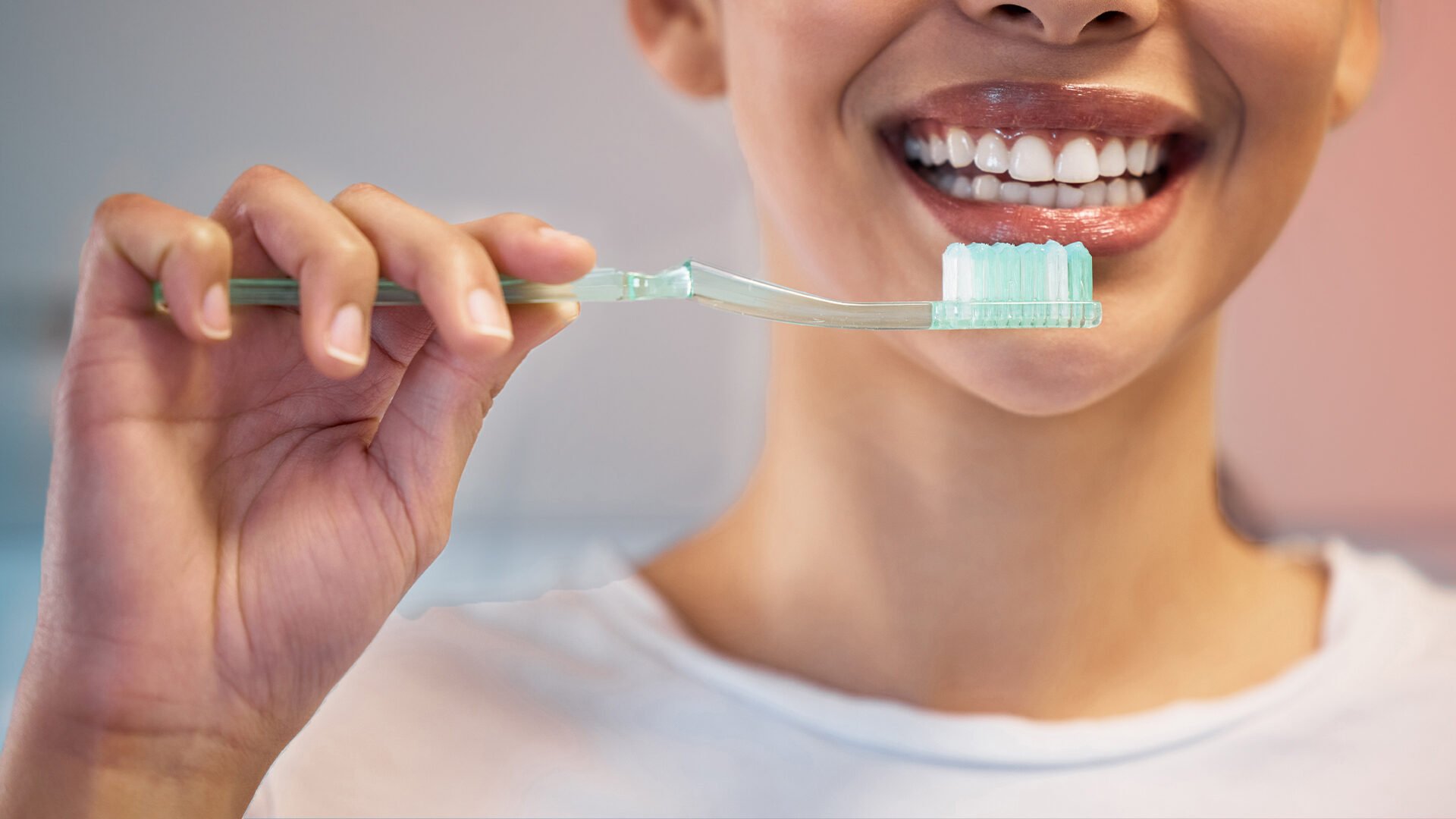Menu
Free Consultation

Dental health is extremely important in terms of general health and aesthetic appearance. The basis of oral and dental care begins with correct tooth brushing. However, while most healthy people put more effort into their teeth, excessive tooth brushing occurs and incorrect techniques can have negative effects on dental health. In this article, how excessive brushing can damage tooth enamel, how it can trigger yellowing, and how correct brushing can be developed for healthy teeth can be created in detail.
The outer part of our teeth consists of tooth enamel. Tooth enamel is a hard and white layer that protects our teeth from environmental factors and harmful bacteria. However, excessive tooth brushing can cause this valuable tooth enamel layer to wear away. As tooth enamel thins, the dentin layer underneath the teeth becomes exposed. Dentin has a yellowish color, which causes your teeth to turn yellow.
Excessive pressure and hard toothbrushes damage tooth enamel by wearing down your teeth. This process, which causes teeth to lose their natural white color, has negative consequences both in terms of aesthetics and dental health. Loss of tooth enamel can not only cause your teeth to turn yellow, but also lead to problems such as extreme sensitivity and cavities.
Excessive tooth brushing can also affect your gums. Brushing with hard brushes can damage the gums and cause them to recede over time. Gum recession causes the root of the teeth to be exposed, and this area is more sensitive and unprotected. The roots of the teeth are covered with dentin and usually have a yellowish color. As a result of gum recession, the appearance of the roots of the teeth can cause the teeth to turn yellow.
In addition, gum recession can further negatively affect dental health. Since the roots of the teeth are more sensitive, cavities and other oral health problems can develop more easily in these areas. Gum recession can progress if left untreated and can lead to tooth loss.
Teeth yellowing is not caused by overbrushing alone, but by a combination of factors. The main factors that can cause teeth to yellow are:
Acidic foods (e.g. lemon, orange) and drinks (e.g. coffee, tea, red wine) can stain teeth and cause them to yellow over time. Excessive consumption of such foods can cause teeth to yellow more quickly.
Smoking is one of the main factors that causes teeth to yellow. Smoking stains the surface of the teeth, which can turn into permanent yellowing over time. Alcohol can also cause teeth to yellow in a similar way.
Some people may have genetically thinner tooth enamel. This can cause teeth to yellow more easily and become sensitive.
Poor oral hygiene can cause plaque to build up and teeth to turn yellow. Plaque that accumulates on teeth can damage tooth enamel over time and accelerate yellowing.
While excessive tooth brushing thins tooth enamel, these factors also contribute to yellowing of your teeth. Therefore, it is important to not only use proper tooth brushing techniques, but also review your general oral care habits.
Brushing your teeth is an important step in maintaining your dental health. However, if you do not brush your teeth correctly, you may experience negative consequences. Here are some basic tips to follow for healthy teeth:
You should brush your teeth gently and without applying too much pressure. Hold your toothbrush at a slight angle to your teeth and brush in circular motions. While brushing, you should make gentle movements to avoid damaging your gums.
Hard brushes can damage tooth enamel. Using a soft-bristle toothbrush gently cleans your teeth while protecting your gums.
Brush your teeth at least twice a day, for 2-3 minutes each time. The brushing time should be enough to thoroughly clean your teeth. Otherwise, plaque left on the surface of your teeth can cause yellowing over time.
Be careful when choosing toothpaste. Whitening toothpastes can whiten your teeth, but excessive use can damage tooth enamel. It is safer to use special formulas for sensitive teeth.
Swishing your mouth with water after brushing your teeth reinforces your oral hygiene. However, it may be more effective to use mouthwash instead of drinking excessive amounts of water immediately after brushing your teeth.
You can review your habits to prevent overbrushing. Brushing your teeth should be done twice a day, morning and evening. However, overbrushing your teeth can damage your teeth. Gently cleaning your teeth while brushing is the best way to protect your dental health.
Avoid brushing your teeth immediately after eating. Because tooth enamel softens after eating and brushing hard during this time can damage your teeth. Brushing your teeth at least 30 minutes after eating helps protect your teeth.
1. Does excessive brushing turn teeth yellow?
Yes, excessive brushing can cause the enamel of your teeth to wear away, which can cause yellowing of your teeth.
2. How often should I brush my teeth?
You should brush your teeth at least twice a day, morning and evening. You should brush for 2-3 minutes each time.
3. Does using a hard toothbrush damage teeth?
Yes, hard toothbrushes can damage your gums and tooth enamel. It is healthier to use a soft-bristled toothbrush.
4. How can I prevent yellowing of teeth?
To prevent yellowing of teeth, you should brush your teeth regularly, avoid acidic foods and drinks, and stay away from habits that damage teeth, such as smoking.
5. Should I overbrush my teeth to whiten them?
No, overbrushing your teeth will damage them. It is safer to choose professional methods for whitening procedures.
It is very important to have the right tooth brushing techniques to protect your dental health. Excessive brushing can damage your teeth and cause them to turn yellow. You can keep your teeth healthy by using a soft-bristled toothbrush and applying gentle brushing techniques. Instead of excessive brushing for teeth whitening, it is best to choose professional methods. Remember, healthy teeth require long-term care and you can achieve this goal with the right habits.
